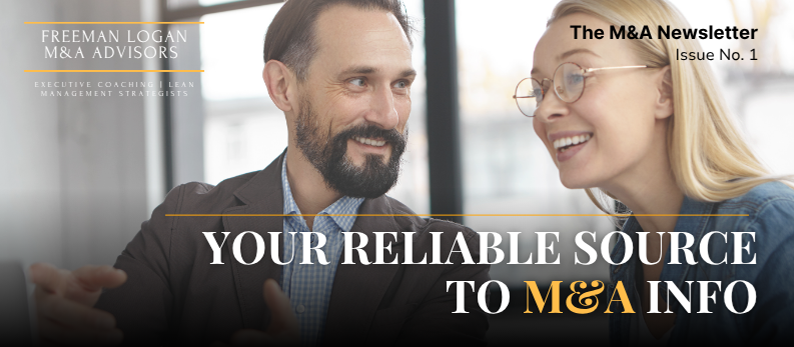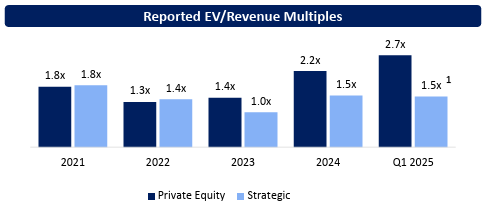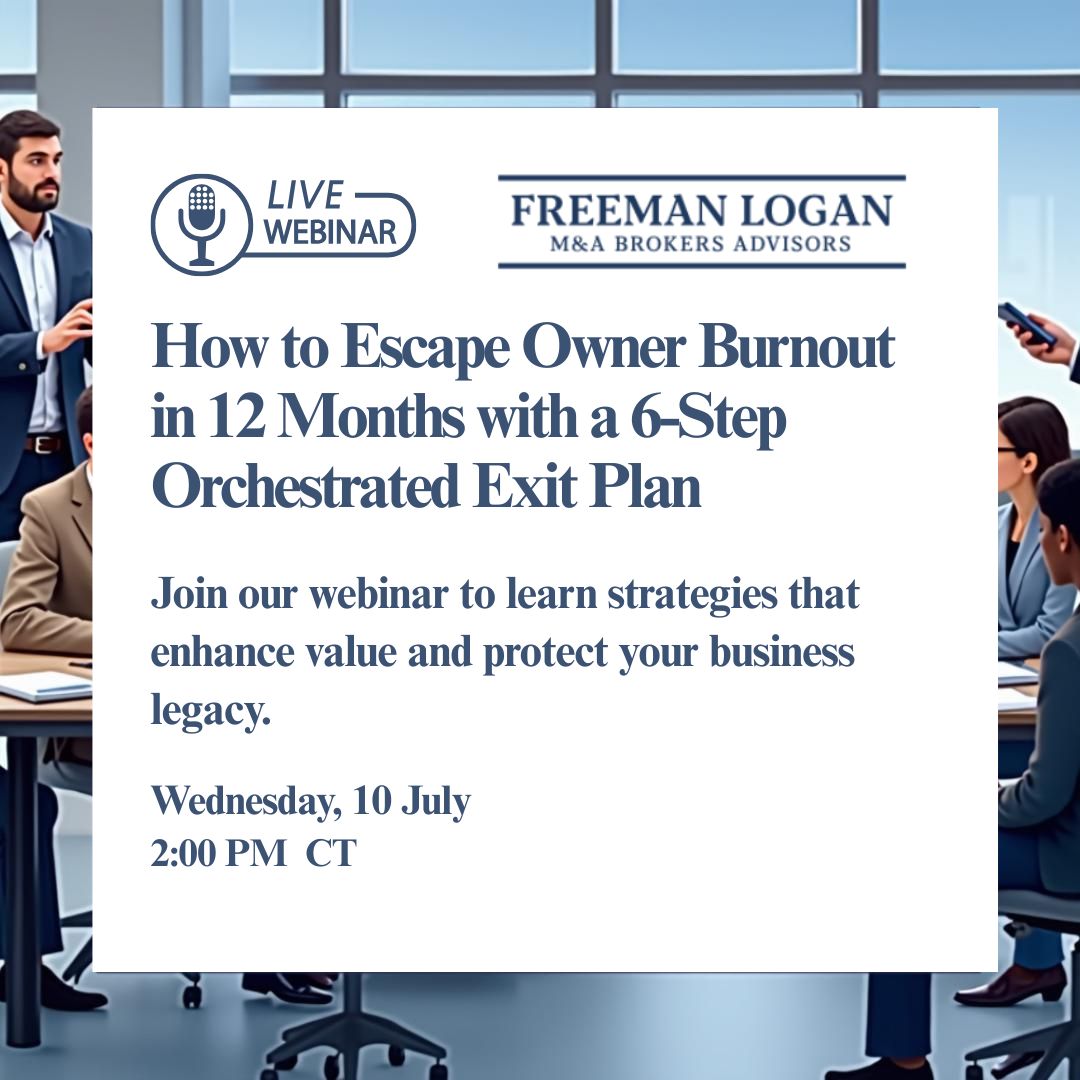
Welcome to the first edition of our biannual M&A newsletter!
In this issue, we cover the latest trends, key deals, and sector insights shaping the global mergers and acquisitions landscape. The next issue will arrive in December, offering a year-end wrap-up and outlook for 2026.
MARKET PULSE
LOWER MID-MARKET M&A IN 2025
The first half of 2025 has seen a significant shift in M&A activity toward the middle and small market segments. According to recent PitchBook data, deals in the $50–$500 million range now account for 25.3% of total market activity, up from 15.2% in 2024. Meanwhile, the smallest transactions (under $50 million) still represent the majority at 65.3%, though this is a decrease from last year, indicating a growing appetite for slightly larger, but still non-mega deals.

Private equity (PE) remains a strong force, representing 41.4% of deal volume in Q1 2025—the highest since 2022—while strategic buyers are also active, especially in sectors like technology, healthcare, and business services.
KEY TREND
LOWER MID-MARKET M&A IN 2025

Agile Growth &
Digital Transformation Accelerators
Mid-market M&A remains brisk, fueled by companies embracing agile growth and accelerated digital transformation. In the $50–$750 million range, acquirers are targeting deals that fast-track scale, open niche markets, or unlock proprietary tech. Operational pressures—especially around analytics, automation, and cloud—continue to drive urgency. Add in a generational shift as seasoned owner-operators look to exit with legacy intact, and the result is a sharp rise in bolt-on deals that deliver immediate digital capability and strategic lift.

Strategic and PE Buyer Mix
Both strategic and PE buyers remain highly active—but their plays look increasingly different. Strategics are pursuing tightly aligned acquisitions to deepen market share, streamline ops, and unlock cross-sell synergies. Meanwhile, PE is deploying dry powder in a focused, thematic way—backing vertical plays in healthcare, sustainability, and tech-enabled B2B services. Their model centers on operational upgrades and add-on growth, building platforms primed for efficient scale and strong secondary exits.

Sector Hotspots: Resilient Tech
& Localized Supply Chains
Tech and supply chain resilience are setting the pace for mid-market M&A. High-demand segments like cybersecurity, AI, and enterprise SaaS attract premium multiples for their stickiness and infrastructure relevance. At the same time, reshoring and geopolitical risk mitigation are sparking deals in advanced manufacturing, logistics, and key domestic production. Buyers are paying up for strategic capabilities that reduce dependency and boost control—driving momentum and multiples in these sectors.

Value Proposition Sophistication
& Legacy Priorities
Sellers are raising the bar on how they position their businesses. It’s not just about trailing performance—buyers want to see IP, growth levers, and leadership bench strength. Strong recurring revenue and defensible positioning still anchor value, but deals are increasingly shaped by softer factors. Owner-operators often prioritize legacy, team continuity, and long-term brand viability. That makes buyer alignment on post-deal vision as important as the financial offer. Culture fit is becoming increasingly important to sellers as well as buyers.

Feeling stuck in the daily grind of your business?
You’re not alone — burnout is real, especially when you’re constantly working in the business instead of on it.
We’ll share a practical, step-by-step framework to help you:

Deal Volume
Financing and Structure
Advice for Owners and Founders
RECENT NOTABLE MARKET DEALS

Sources: PitchBook, Financial Times, Axios, Thomson Reuters, Bloomberg
REGULATORY & PROCESS CONSIDERATIONS
Even SMEs must consider regulatory clearance, especially in sensitive sectors (tech, telecom, engineering, government contracts). The UK’s NSIA and similar regimes elsewhere mean even smaller deals may warrant voluntary filings to preempt scrutiny.
Digital tools and AI are increasingly used in due diligence, target identification, and integration, streamlining the M&A process for smaller firms.
THE HIDDEN FACTORS IN M&A:
CULTURAL FIT & STRATEGIC ALIGNMENT
Often when owners start to consider their exits, the planning process includes criteria such asfinancial growth, EBITDA, tax structure, and other risk considerations. As investors or acquirers get to know the owner, they often don’t go beyond the management team to consider the full asset they are purchasing.
Unfortunately, this means that only 70% of of transactions completed after financial due diligence alone do not meet strategic goals because they fail to consider other aspects of compatibility. Additionally, 44% of M&A leaders cited “lack of cultural fit” and friction between acquiring and target companies” as the top reasons that integrations fail.
What does that mean for those who want to be sure they maintain the value of the company they built over time? We encourage all owners and buyers alike to make a point to confirm that cultural fit is a core strategic filter that should be embedded before LOI and throughout the buyer screening process. It’s a proactive lens for buyer selection and not just a post-diligence afterthought or a soft consideration – and not just for the buyer to consider. Although you as a seller may be exiting, confirming this fit will ensure the intangibles you are looking for as well like legacy, reputation, and value.
Freeman Logan and Conscient Strategies often partner to bring their Buyer Compatibility Scorecard and QofT™ (Quality of Teams™) to evaluate alignment criteria such as collaboration styles, results orientation, decision-making cadence, incentive and motivation behaviors and policies, communication style, financial philosophy, team leadership approach, organizational structure, and post-close autonomy expectations. As you begin to meet with potential acquirers ask the following questions:
Depending on the earn out or hold back arrangements, it may be in everyone’s best interest for the transition plan be drafted in advance of the transitional. Once the transaction is complete, establish means to make sure that there is alignment along the way so the team can see that leadership is looking out for their best interest and there is commitment to the team remaining.
And – remember – the hardest part of the transition letting go of the final decisions and handing over full responsibility to the new owners as the ones managing the strategy going forward. This is a big shift from how you have been operating for years – and also part of the challenge for the team. Your ability to shift your perspective on ownership will create space for your team to shift how they show up for the new company.
For more, reach out to www.conscientstrategies.com
Looking ahead…
The remainder of 2025 is expected to be especially active for boutique and mid-market-focused M&A agencies. With buyers seeking agility and sellers motivated by market conditions, the environment is ripe for well-advised, strategic transactions. The December issue will provide a full-year review and early insights for 2026.
For smart advice or to discuss your M&A strategy,
contact us today or schedule a call.
You can unsubscribe from these emails here

